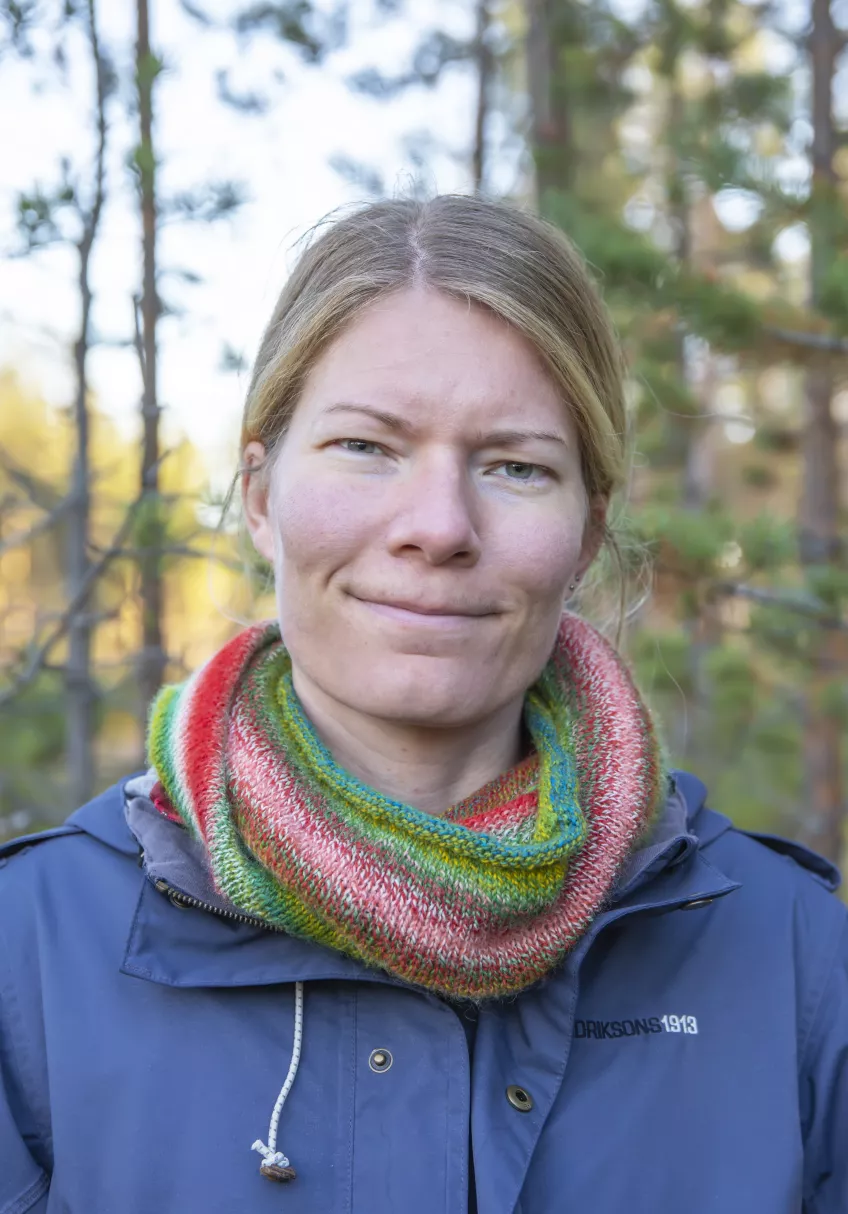Hanna Alfredsson
Hanna Alfredsson did her PhD between August 2011 and October 2015. The thesis she wrote was about the occurrence of the abundant element silicon in the permafrost soil. During the thesis work she made fieldtrips to both Svalbard and Alaska where she collected samples from the soil to use in the study.
Today, Hanna works as the coordinator at biosphere reserve Voxnadalen. A job which she immediately got after her PhD. She is very thankful that she did dare to try continue her path outside academia and got this job.
At the start of her employment, Voxnadalen was still not a biosphere reserve area. Hanna was immediately put to work with the application of making it a biosphere reserve area, which was about to be sent to UNESCO. She expresses great appreciation of her academic skills in writing during this process, it was almost as writing a second thesis she tells.
In 2019 Voxnadalen was admitted as a biosphere reserve and thereafter Hanna has continued in the role of coordinator. Her work is very diversified. It demands to create connections and uphold these with various people, attend to different stakeholders' interests and communicate the current projects and ongoing activities at the biosphere reserve to the public.
Applying for projects and managing them is also a major part of the job as well as supporting science and education on sustainable development e.g.,being a part of Naturvårdsverkets research program and two other projects in corporation with SLU.
Hanna says that her experience of the academic world felt very “protected” and as being in an academic bubble. There was little interaction with experiencing clashing narratives from the “real world” regarding various subjects. In academia you often have your specific and narrow take on a subject, being surrounded with similar people and not facing these different narratives that she later experienced when entering the working world. More integration of external actors would have been beneficial to include in the education.
Otherwise, she is very grateful for the experiences and qualities she has gained through her PhD. To write, multitask, work independently and driving the work forward are some of them. The people are one of the major things she misses. To be able to experience and meet different people from different cultures and come together around science was of great appreciation.
She appreciates further and also urges current student that seeks to continue their path outside academia to value the general and broad knowledge gained in academia. Not just the specific subject you're interested in but the skills and knowledge you gain from studying and doing research. They will be beneficial and appreciated later in your career path.
